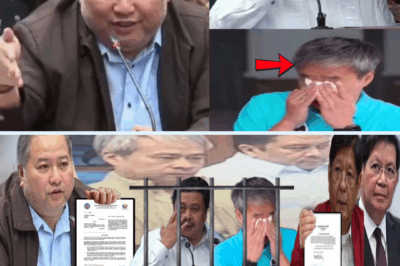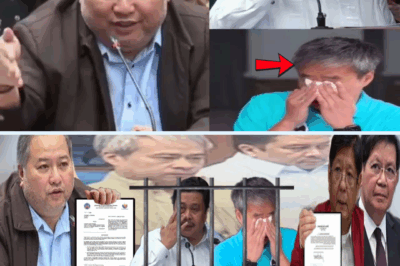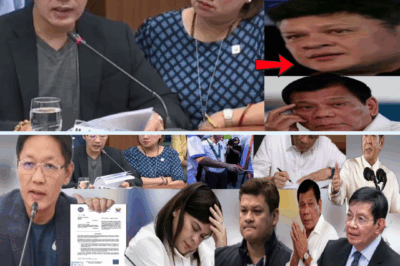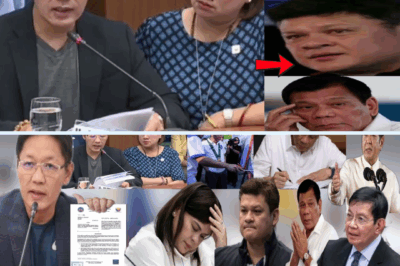Coney Reyes Speaks Out: Veteran Actress Warns Public Against Fake Facebook Account Linked to Alzheimer’s Post
In the age of social media, misinformation spreads faster than ever, and even respected celebrities are not spared from its reach. Recently, award-winning veteran actress Coney Reyes, one of the Philippines’ most admired screen icons, found herself the target of online impersonation. A fake Facebook account bearing her name and photos began circulating posts related to Alzheimer’s disease—and even linked her to a supposed health product endorsement.
The actress, known for her integrity and long-standing reputation in the industry, did not take the incident lightly. Through her official Instagram Stories, Coney raised the alarm and urged the public not to fall victim to the scam.
The Fake Post That Sparked Concern
Screenshots shared by Reyes revealed a suspicious Facebook post with the headline: “If you have Alzheimer’s disease, read now.” The post was allegedly created by an account pretending to be her, and it attempted to lure readers into believing she was involved in promoting a product called Mind-Max, supposedly linked to Alzheimer’s treatment.
In a bold and emphatic response, Coney plastered her Stories with the words: “FAKE NEWS!!! FAKE account!!!” Her warning was clear—she had nothing to do with the misleading post, and she would never allow her name to be used in such a deceptive manner.
Adding to the deception, the fraudulent post also included a fabricated comment falsely attributed to her. The comment read:
“I don’t sell the product and I don’t profit from Mind-Max. I’m just a user who has experienced its benefits and want to share it with my followers.”
Coney clarified that she had never written such words, further proving the account was designed to exploit her image and credibility.
Why This Matters: The Rise of Fake Accounts
Coney’s warning underscores a broader problem in the digital age: the proliferation of fake accounts and online scams. With millions of Filipinos relying on social media as their primary source of information, the dangers of falling for misleading content have only increased.
Fake accounts do not just harm the celebrities they impersonate; they also exploit vulnerable individuals who might trust the name and face behind the profile. In this case, using Coney’s respected reputation to push health-related claims could potentially put lives at risk. People struggling with or caring for loved ones with Alzheimer’s may be swayed by false promises of a “miracle product.”
By calling out the scam publicly, Coney not only protected her name but also shielded countless followers from being misled.
Coney Reyes: A Legacy of Integrity
Coney Reyes is not just another celebrity. She is a veteran actress, TV host, and public figure with a career spanning more than four decades. Over the years, she has earned a reputation not only for her outstanding performances on screen but also for her strong moral compass and commitment to her faith.
Her influence extends beyond entertainment. As the mother of Pasig City Mayor Vico Sotto, she has become a figure associated with integrity, honesty, and public service. It is precisely because of this reputation that scammers may have seen her as an ideal target. If people believed she endorsed a product, it would instantly gain credibility.
But Coney’s quick action proved that she would not allow her name or image to be exploited for commercial gain—especially at the expense of the public’s trust.
The Dangers of Health-Related Misinformation
Health-related scams are among the most dangerous forms of misinformation. By falsely linking Coney to Alzheimer’s products, the fake account tapped into a deeply sensitive issue. Alzheimer’s disease is a devastating condition that affects millions worldwide, and families often seek hope in new treatments or supplements.
Scammers know this vulnerability. By using a trusted public figure, they create a false sense of security around their products. However, unverified supplements or treatments can be ineffective at best, and harmful at worst.
Coney’s bold stance not only defended her name but also reminded the public to be critical of health information found online. As she demonstrated, if something seems suspicious—especially when it involves a celebrity endorsement—it should always be verified through official sources.
Fans Rally Behind the Actress
After Coney issued her warning, fans and netizens expressed their support. Many commended her for quickly addressing the issue, while others highlighted the importance of reporting and blocking fake accounts. Comments from her supporters included:
“Thank you, Ms. Coney, for standing up against these scammers.”
“We trust you and appreciate you protecting the public.”
“Scammers are getting more desperate these days. We should all be careful.”
The incident not only strengthened her relationship with her fans but also demonstrated how a celebrity’s transparency can empower people to be more discerning online.
Lessons for the Public
Coney’s experience provides several key takeaways for social media users:
Verify Accounts – Always check if a celebrity account is verified with a blue checkmark or linked to their official channels.
Be Critical of Health Claims – No celebrity endorsement should replace professional medical advice. Consult doctors before trying new treatments.
Report Suspicious Content – If you encounter fake accounts, report them immediately to prevent others from being misled.
Trust but Verify – Even familiar faces can be misused. Cross-check information through reliable media outlets.
The Broader Battle Against Misinformation
This incident with Coney Reyes is just one of many cases where public figures have been targeted by impersonators. The fight against misinformation remains an ongoing battle for both celebrities and ordinary individuals alike.
Social media platforms like Facebook and Instagram have pledged to strengthen their security and verification systems, but the sheer volume of fake accounts makes the task challenging. Until stricter regulations and more effective measures are in place, vigilance remains the public’s best defense.
Conclusion: A Voice of Truth in a Sea of Lies
In calling out the fake account, Coney Reyes has once again proven why she is admired not only as an actress but also as a person of integrity. By speaking up, she protected her fans, safeguarded her legacy, and highlighted the growing dangers of online scams.
Her strong words—“FAKE NEWS!!! FAKE account!!!”—resonate as a reminder that in today’s digital world, truth and trust are fragile commodities that must be defended.
Coney’s warning should inspire not just her followers but all social media users to remain cautious, question what they see online, and resist the lure of too-good-to-be-true claims. In the end, her vigilance is more than a personal defense; it is a public service in the ongoing fight against misinformation.
News
Alcantara’s shocking testimony shakes Villanueva and Estrada—dark secrets surface, power trembles, and the nation demands the hidden truth.
Breaking News: Villanueva and Estrada Under Fire as Henry Alcantara Testifies In a stunning twist that has sent shockwaves across…
Villanueva and Estrada shaken—Alcantara’s explosive testimony reveals hidden secrets, sparking fear, betrayal, and a nation demanding shocking answers.
Breaking News: Villanueva and Estrada Under Fire as Henry Alcantara Testifies In a stunning twist that has sent shockwaves across…
Villanueva, Estrada cornered—Alcantara’s shocking testimony drops bombshell secrets, power crumbles, and the nation braces for explosive truth.
Breaking News: Villanueva and Estrada Under Fire as Henry Alcantara Testifies In a stunning twist that has sent shockwaves across…
Discaya’s bombshell rocks the Dutertes—secrets explode, power crumbles, and the nation holds its breath for the truth.
Breaking News: Duterte Family Faces Political Firestorm as Discaya Testifies In a political drama that has gripped the Philippines like…
Duterte empire on the brink—Discaya breaks silence, explosive secrets revealed, power shaken, and the nation waits breathlessly.
Breaking News: Duterte Family Faces Political Firestorm as Discaya Testifies In a political drama that has gripped the Philippines like…
Discaya’s shocking testimony ignites firestorm—Duterte dynasty shaken, secrets exposed, and a nation demands answers to chilling allegations.
Breaking News: Duterte Family Faces Political Firestorm as Discaya Testifies In a political drama that has gripped the Philippines like…
End of content
No more pages to load










